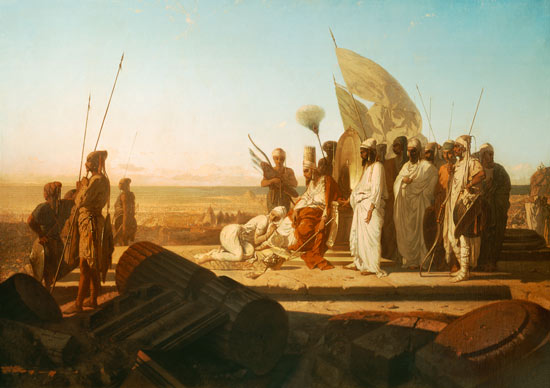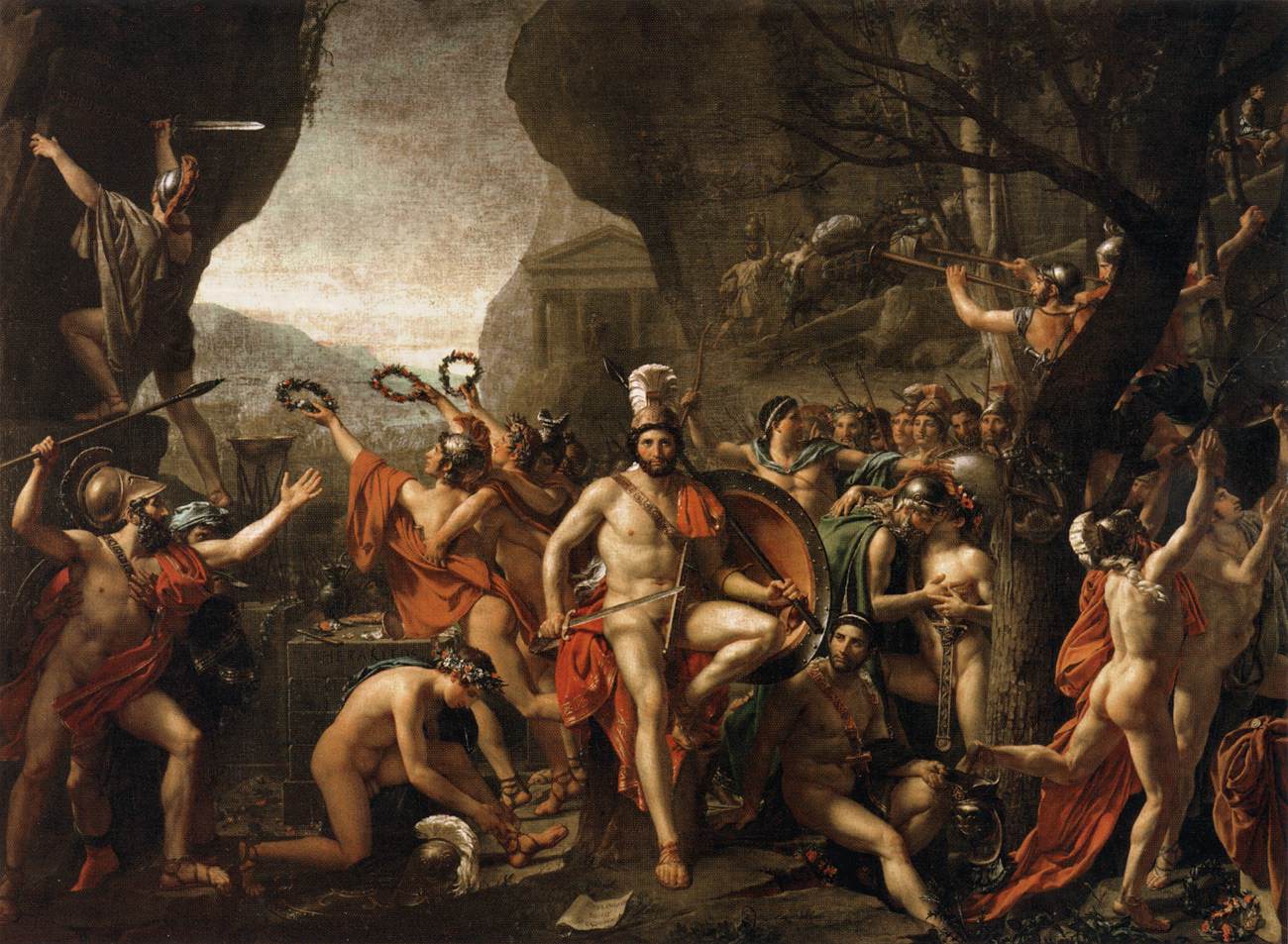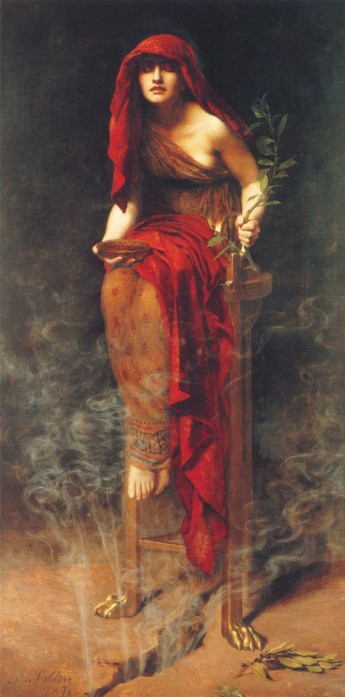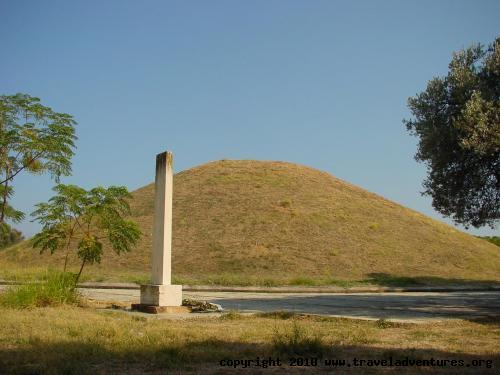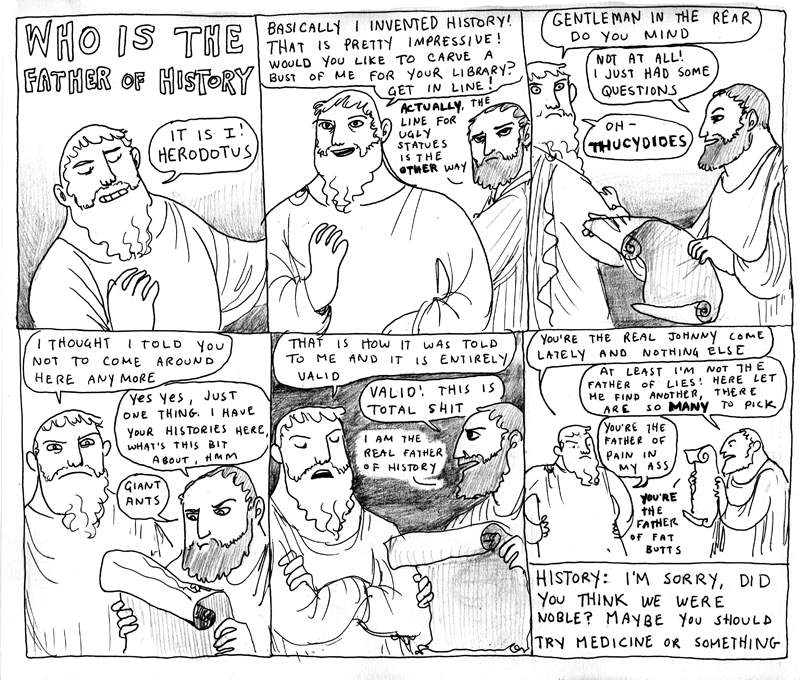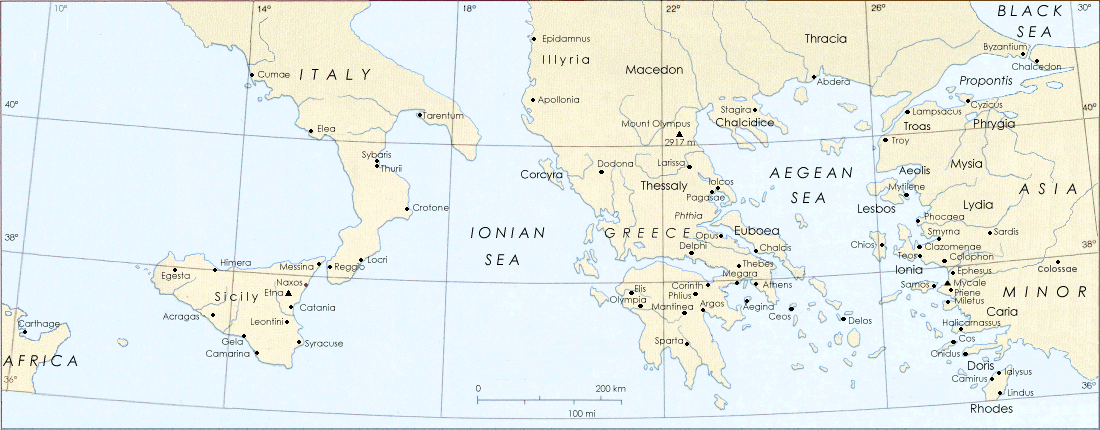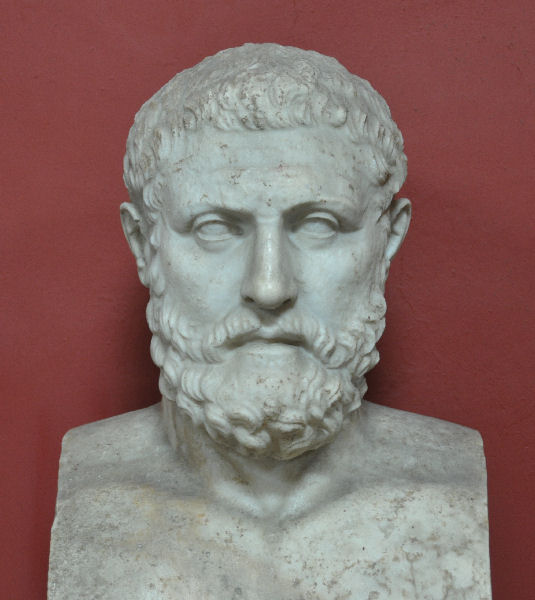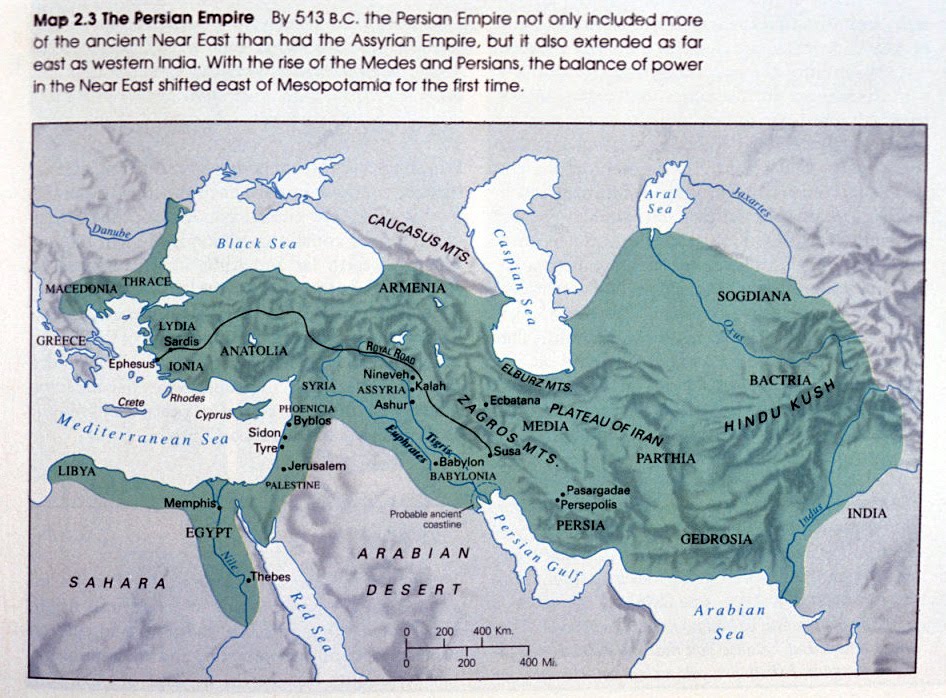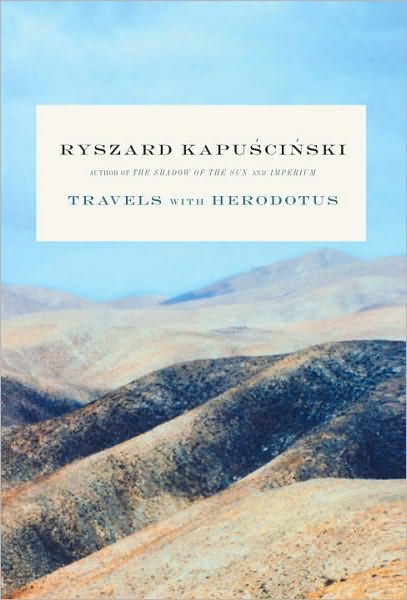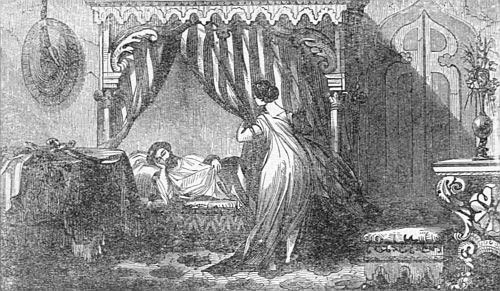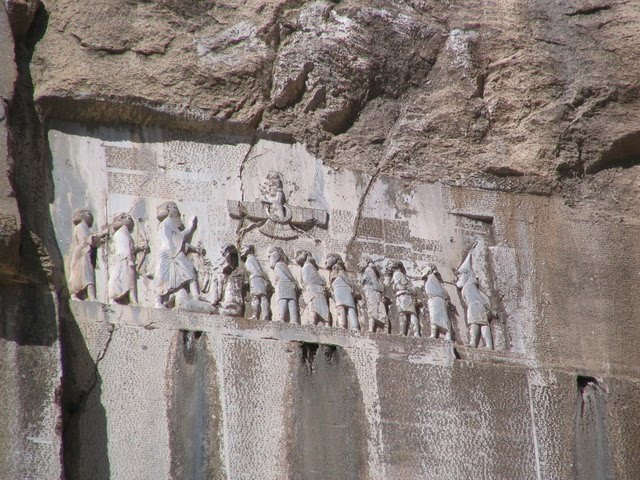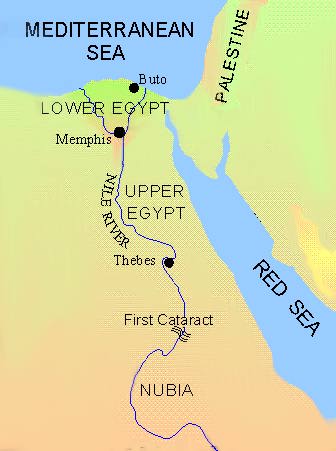Xerxes at the Hellespont, Jean Adrien Guignet I exercised my kingship on condition that I led a hard, sober and industrious life, just like that of my people. I was king solely to defend my fatherland and to ensure the rule of law. My kingship gave me the power to do good without permitting me […]
Tag: Herodotus
Jacques-Louis David, “Leonidas at Thermopylae” (1814) Picture and poem shamelessly lifted from Stephen Pentz Thermopylae Honor to those who in the life they lead define and guard a Thermopylae. Never betraying what is right, consistent and just in all they do but showing pity also, and compassion; generous when they are rich, and when they […]
Priestess of Delphi, John Collier (1891)Picture source For the Athenians had prepared to consult the oracle by sending sacred delegates to Delphi, who, after performing the usual preliminaries at the sanctuary, entered the inner shrine and took their seats. The Pythia, whose name was Aristonike, gave them the following oracular response: Why sit so idle, […]
I have now reached a point at which I am compelled to declare an opinion that will cause offense to many people, but which nevertheless appears to me to be true, so I shall not restrain myself. If the Athenians had evacuated their land in terror of the danger approaching them, or if they had […]
Internet access will be uncertain for the next week. Hopefully I’ll find a nice sea-wet rock where I can comb (what’s left of) my hair…hopefully with better terms than the Spartans (and others) had to deal with. THE ORACLES A. E. Housman ‘Tis mute, the word they went to hear on high Dodona mountain When winds […]
(enlarge for detail) I saw Marathon: The Battle That Changed Western Civilization by Richard A. Billows was released last month and I wanted to find out more about it. I’m not sure if the typo in the attached screen-grab of the Amazon.com page came from the original review or not, but I wanted to share […]
But at this time [490 BC], Nikodromos led the common people in an attempted revolt, which was put down by the affluent Aeginetans [Aegina is an island southwest of Athens]. The victors led out the captive rebels in order to execute them, and because of what happened next, they came under a curse that they […]
The burial mound (Soros) and grave stela at Marathon Picture source: courtesy of www.traveladventures.orgThe Athenians, as defenders of the Hellenes, in Marathon destroyed the might of the golden-dressed Medes – composed by Simonides The Soros, the extraordinary burial mound built over the graves of the Athenian troops who died at Marathon. The bones of Athenian […]
The Alkmeonids were illustrious among the Athenians from their very beginnings, but became even more so because of Alkmeon and later Megakles. For Alkmeon son of Megakles enthusiastically assisted and proved himself an avid supporter of those Lydians who used to come from Sardis, being sent by Croesus to the oracle at Delphi. When Croesus […]
click to enlarge From Hark! A Vagrant by Kate Beaton, a lighthearted look at the attribution and problems with the title “The Father of History”. Click through to the archives for more comics, including quite a few on history and literature.
Picture source Map (at source) is interactive Although Athens had been a great city before, it became even greater once rid of its tyrants. – from Paragraph 66 So the Athenians had increased in strength, which demonstrates that an equal voice in government has beneficial impact not merely in one way, but in every way: […]
Picture sourceSince I’m behind on writing anything, I wanted to post an excerpt from Book Five of The Histories. This is from the speech of Sokleas of Corinth as he rebukes the Spartans for wanting to return tyrants to Athens. From Paragraph 92: “After he [Kypselos] had ruled for thirty years and had woven out […]
Following the capture of Babylon, Darius led an army against Scythia. For Asia was flourishing; it had both numerous fighting men and ample revenues, and Darius had developed a desire to punish the Scythians for having earlier invaded Media and having conquered those who had tried to oppose them; for in doing this the Scythians […]
Ryszard Kapuściński’s Travels with Herodotus is a marvelous half-memoir of his career and half-reflection on Herodotus’ The Histories. Other than a few articles I’ve read over the years, this is my first extended exposure to Kapuściński. I have definitely shortchanged myself in not reading more of his work before now. Kapuściński was a Polish journalist/correspondent […]
I have already mentioned where the author of this account came from; and now I shall tell you what I heard about him in Proconnesus and Cyzicus. Aristeas, they say, was in lineage the equal or superior of any citizen in his town. One day he entered a fuller’s shop in Proconnesus and dies there, […]
Two presentations on the story of Gyges from The Histories. First is Kristen Scott Thomas in The English Patient (link, in case the video doesn’t display): Next is a fun little parody by Mike using scenes from various Star Wars movies (I can’t find the link anymore…if anyone knows of a site hosting it, please […]
Phaidymie feeling for Smerdis’s Ears Picture source Never hath a painless life Been cast on mortals by the power supreme Of the All-disposer, Cronos’ son. But joy And sorrow visit in perpetual round All mortals, even as circleth still on high The constellation of the Northern sky. What lasteth in the world? Not starry night, […]
The inscription of Darius I, the Great on Mount Behistun Picture sourceFrom Livius.org: In Antiquity, Bagastâna, which means ‘place where the gods dwell’, was the name of a village and a remarkable, isolated rock along the road that connected the capitals of Babylonia and Media, Babylon and Ecbatana (modern Hamadan). Many travellers passed along this […]
I have given a rather lengthy account of the Samians because they achieved the three greatest engineering works of all the Hellenes. First, they dug a tunnel through a 900-foot-high mountain; it is 4,080 feet long and 8 feet high and wide. Another channel, 30 feet deep and 3 feet wide, was dug along the […]
Map of ancient EgyptAfter the Persian king Cyrus dies and before the narrative follows Cambyses’ reign, Herodotus pauses and relays his inquiries and research on Egypt. While still wealthy, Egypt had declined markedly over the previous few centuries. Despite the decline, the wonders and achievements he sees in that land provide material for an entire […]
